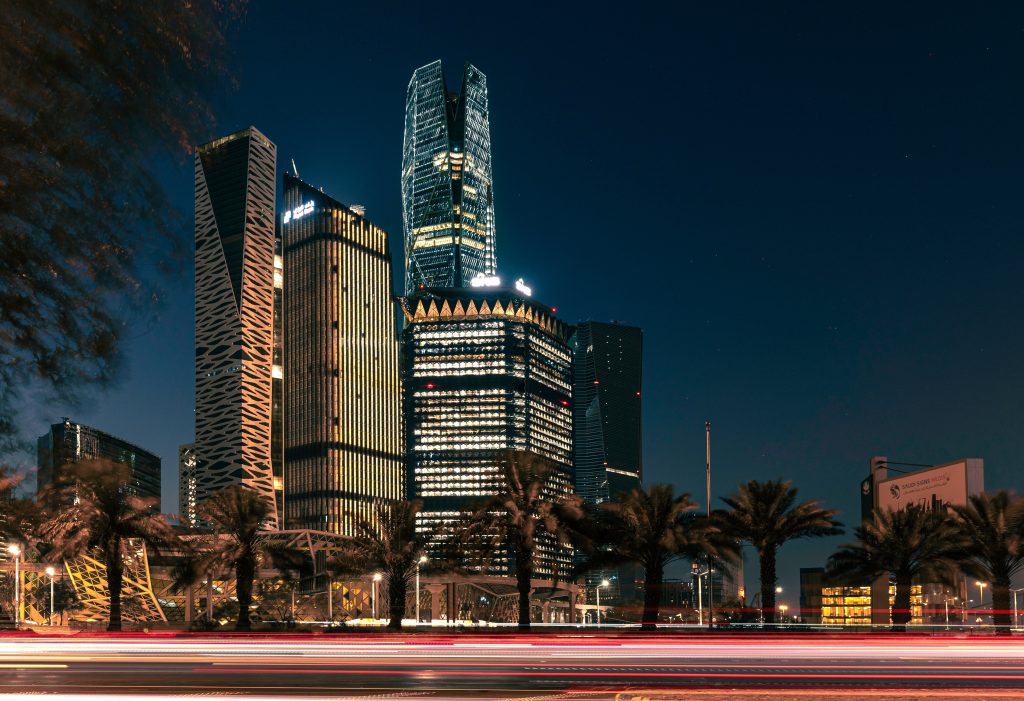In the initial quarter of 2024, Saudi Arabia experienced a surge in the construction industry, with the value of contracts awarded amplifying by 79% to hit SR118.8 billion ($31.65 billion). This leap represents the second highest recorded figure since the peak of SR147.1 billion in Q3 2015, showing a robust 35% increase from the preceding quarter in 2023.
The impetus behind this substantial growth is attributed to significant capital inflows into the oil and gas sector, buoyed by the dynamic real estate market propelled by the nation’s ambitious Vision 2030 initiatives, and the expansion within the water sector.
These impressive numbers underscore Saudi Arabia’s strategic endeavors to foster economic growth through international investments and key partnerships. The country’s construction sector is burgeoning, spurred by upgrades in social and physical infrastructure, enhanced living standards, and a notable uptick in foreign direct investment, according to Albara’a Al-Wazir, the director of economic research at the US-Saudi Business Council (USSBC).
Despite facing global economic trials, the Kingdom’s non-oil economy swelled by 3.1% in Q1 2024, even as the gross domestic product dipped by 1.7% due to the adherence to oil output reductions by OPEC+. This resilience is indicative of structural economic reforms aimed at reducing reliance on oil and establishing a more stable economic environment.
Projects led by Saudi Aramco have been pivotal to this growth, as well as the contributions from Vision 2030 mega-projects, such as Neom and the Red Sea development. The construction sector’s contribution to the GDP also saw a 2.4% rise during this period, affirming its critical role in the nation’s economic advancement and its emerging status as a hub for large-scale construction projects.
The USSBC’s Contract Awards Index (CAI) reached 415.89 points in the first quarter, signifying a 54% rise from the last month and a 33% increase from Q4 2023. It indicates sustained construction activity growth, marking seven consecutive quarters above the 200-point mark and a continuous three-year period above the 100-point benchmark.
The CAI’s growth trajectory is illustrated by its rise to 390.24 points in January, 438.85 points in February, and finally stabilizing at 415.89 points in March. These figures surpassed the 400-point mark for the first time since September 2013, when it reached 419.42 points.
Highlighting the sector-specific achievements, the oil and gas sector witnessed a staggering 1,059% year-on-year increase in project awards, totaling SR51.2 billion for the quarter. Saudi Aramco played a major role, awarding significant contracts for the Riyas NGL development and the Master Gas System Expansion’s phase three.
The real estate sector also showcased its robustness, securing 105 contracts worth SR24.4 billion, a 58% increment from the prior year. The sector was led by commercial real estate, followed by residential and mixed-use developments. High-profile contracts, such as those for a sports stadium in Jeddah and the Dammam football stadium, were notable contributors to this sector’s expansion.
Moreover, the water sector contracts soared to SR24 billion across 14 deals, reflecting a 143% increase from the same timeframe in 2023. NEOM’s water dam developments and sewage treatment plants stand out among the major contracts awarded.
Region-wise, the Eastern province spearheaded in construction contracts with a total of SR53.1 billion, with the Tabuk and Makkah regions following suit. The proliferation of contracts across diverse sectors is a testament to the Kingdom’s escalating role as a pivotal destination for infrastructure investments and its unwavering economic activity amidst global challenges. With a consistent influx of high investments and strategic alliances, Saudi Arabia is well on its path to sustained development and infrastructural enhancement, cementing its position in the global construction arena.
